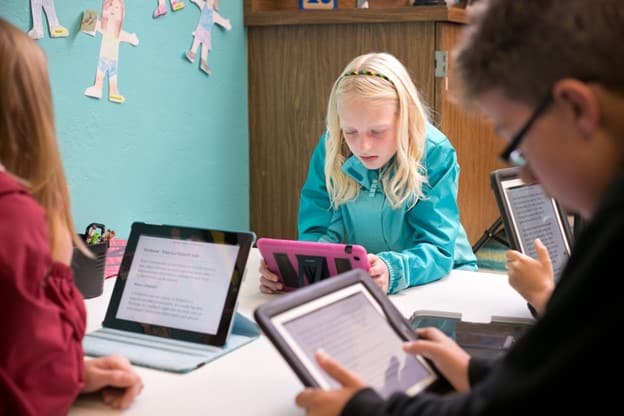|
Getting your Trinity Audio player ready...
|
1. Perusing on a screen does not have a material encounter:
Perusing is a multi-tangible encounter. As per research, the cerebrum’s demonstration of perusing utilizes sight, yet in addition the demonstration of touch. There is something in particular about holding an actual page of material that makes it more absorbable. The move from paper to screen doesn’t simply change the manner in which we explore a piece of composing. It additionally impacts the level of consideration we give to it and the profundity of our submersion in it.
2. Perusing on a screen makes it harder to explore and situate oneself, particularly with hypertexts:
Hypertexts are one of the web’s most significant instruments. In fact, hypertexts are the explanation that the web is classified “the web.” The client bounces starting with one spot then onto the next with the snap of the mouse, and afterward to another, and afterward to another shaping a snare of hops. Frequently, precisely where you are, and how you arrived, may not be by and large clear. That is fine in the event that you are simply attempting to constantly refine your quest for explicit data.
As only one of many exploration models, 35 grown-ups were given a short story to peruse in the typical direct content arrangement and were contrasted with another 35 grown-ups who were given similar story to peruse in a variant with hypertexts, for example, would be found on a site page. Despite the fact that the hypertext perusers took longer, 3 out of 4 revealed issues following the content, contrasted with only 1 out of 10 perusers who were given the direct content.
3. Computerized innovation may prompt shallower cognizance:
In customary printed books, the writer has (apparently) invested extensive energy contriving a consistent story or line of thinking. As the peruser manages the book, he can pause and consider the unfurling material. At the point when he is done contemplating what he just read, the book is still there—prepared to lead the peruser again along an extensive, completely thought out trail of rationale. Hypertexts are the passing of a creator driven line of thinking. They take you all finished, from one spot to another, creator to creator, subject to subject—and once in a while return you to your hopping off place of that thoroughly examined, complete content that you began with. All things considered, the watcher winds up skimming locales (i.e., shallow perusing) as he bounces around searching for the following fast remunerating goody. Undoubtedly, the normal site page holds the peruser for 18 seconds.
4. Perusing on an advanced gadget is diverting:
Perusing on a web empowered gadget or with preloaded computer games is profoundly diverting. The vast majority of understudies felt that they were bound to be performing multiple tasks while perusing carefully, while just 1% felt that a printed copy would make them bound to perform various tasks. Nine percent felt the medium (electronic or paper) didn’t make any difference when it came to performing various tasks.
Perusers plainly favor printed version perusing (regardless of whether it weren’t a superior learning instrument)
Despite the fact that there is a lot of proof that computerized perusing, particularly on the web, meddles with learning, the proof is still fairly uncertain. It is quite convincing, however, that perusers incline toward perusing on a printed copy versus through computerized screen by 89% versus 11%, and will pick a printed copy over a computerized form whenever given the decision. The numbers are genuinely consistent whether looking over US, Japanese, or German understudies.
Apparently the length of the material plays into the inclination. Understudies didn’t mind which medium is utilized when connecting short messages, for example, paper articles. Nonetheless, 92% of US understudies favored printed copy for long homework messages just as for long joy understanding writings. Understudies incline toward the experience of feeling the pages, having the option to know where they are in the content, the capacity to flip to and fro, and even the smell of the book. They loved customizing their ownership with manually written notes. They appreciated less eye fatigue. (Aristocrat 2015) They likewise appreciated not being diverted by those things that their computerized gadget could take them to with a tick of a catch.

